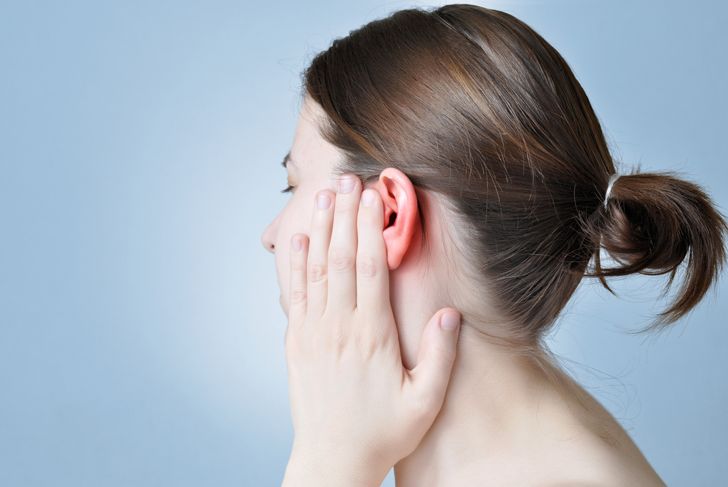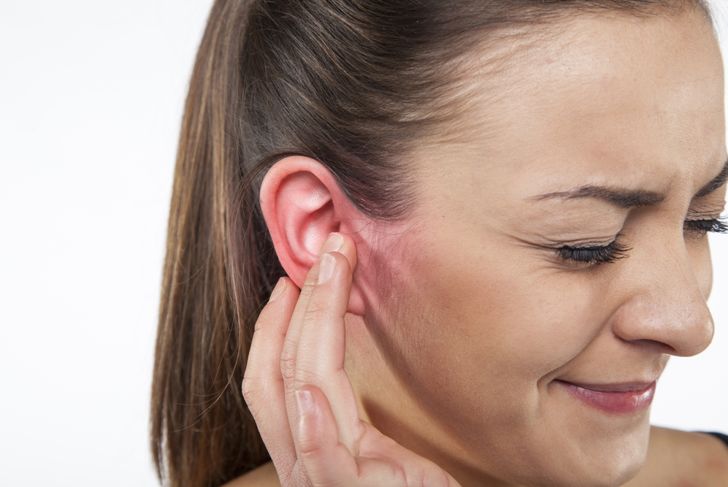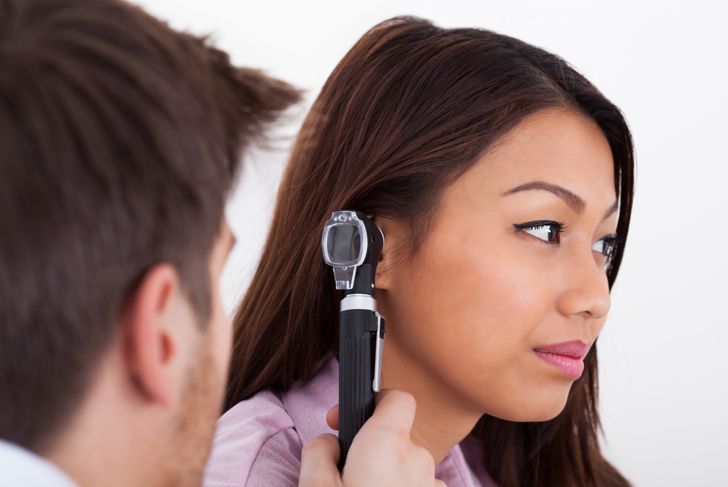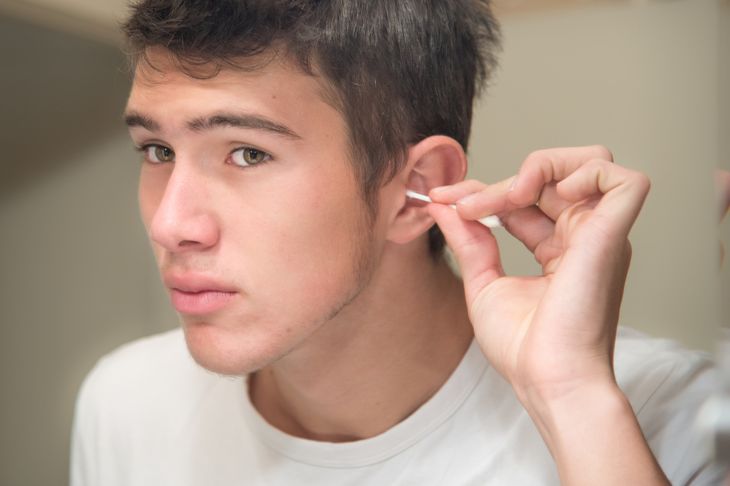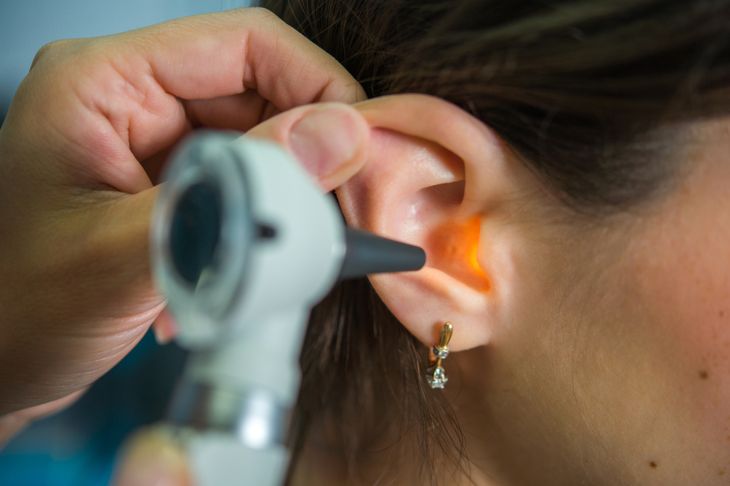If you spend a lot of time in the pool during the summer months, you may have encountered otitis externa or swimmer’s ear, a painful infection of the outer ear canal. More common in children than adults, otitis externa is a bacterial or fungal infection, easily contracted but easily treated if caught early. As with any ear infection, prompt medical treatment is necessary to avoid complications. Many cases of swimmers ear are cureable with over-the-counter medication, but a doctor consultation is always advisable.
Causes of Swimmer’s Ear
The most frequent cause of swimmer’s ear is water trapped in the outer ear canal, typically from repeated submersion into a pool or lake. Small amounts of water stay in the ear canal, which creates a warm, damp environment for bacteria or fungi to fester. Putting cotton swabs, fingers, or other small items into your ear can also cause otitis externa, as this can damage the inner skin of the ear canal. Small abrasions coupled with the warm environment of the ear can lead to the rapid growth of infectious organisms.
Mild Symptoms of Swimmer’s Ear
Swimmer’s ear can be mild, to begin with, but the symptoms can progress rapidly if untreated. Initial symptoms of swimmer’s ear include itching inside the ear canal and visible redness, both around the opening of the canal and inside. People with the infection may find the mild discomfort becomes worse when they pull on the outer ear or push on the tragus – the little bump in front of the ear. They may also notice a bit of colorless, odorless drainage.
Moderate Symptoms of Swimmer’s Ear
Moderate swimmers ear has symptoms similar to mild swimmer’s ear; however, the pain, redness, and itching are more pronounced and uncomfortable. The ear will discharge more fluid, both colorless liquid and pus. Moderate swimmer’s ear leads to muffled hearing and difficulty discerning sounds. Affected individuals may feel a fullness in the ear or the sensation of something blocking it. Some people report feeling as if cotton is stuffed in their ears.
Advanced Progression of Swimmer’s Ear
Left untreated, advanced swimmer’s ear can cause severe pain along the affected side — not just the ear, but also around the jaw and down the side of the face and neck. There may be redness and swelling of the entire outer ear, as well as noticeable pus discharge. Advanced swimmer’s ear results in complete blockage of the ear canal and swollen lymph nodes. This condition is extremely painful. It may become harder to hear out of the affected ear, and a low- to medium-grade fever may accompany the other symptoms.
Signs of Chronic Swimmer’s Ear
Competitive swimmers or those who often swim recreationally may contract chronic swimmer’s ear. The symptoms of this are similar to occasional swimmer’s ear, including the progression from mild to severe. Additional signs of chronic swimmer’s ear include dry, flaking skin from the ear canal and around the exterior of the ear, as well as reddening of the earlobes. Swimmer’s ear is considered chronic if these symptoms repeatedly occur as multiple sequential episodes rather than one lengthy illness. It can also be chronic if the symptoms persist for more than three months.
Complications from Chronic Swimmer’s Ear
Repeat instances of chronic swimmer’s ear can result in permanent loss of hearing, as well as cellulitis, an infection deep within the epidermal layers. A more severe, yet less common, side effect is malignant otitis externa, an infection that spreads to the base of the skull. Those with diabetes and other immune deficiencies are especially susceptible to this type of infection.
How Swimmer’s Ear Infection Occurs
Although swimmer’s ear can occur from frequent submersion in a pool or lake, there are other possible causes. Bacteria and fungi love warm, damp environments — the inner ear provides ideal conditions for rapid growth. Heavy perspiration and excess moisture can lead to swimmer’s ear. Scratches and abrasions on the tender skin of the inner ear can also open the door to bacterial infections. Although not caused by excess water, inner ear infections present in the same manner. Finally, some hair products and jewelry can cause allergic reactions, leading to infection in the ear canal.
Treating Chronic Swimmer’s Ear
Before beginning treatments for swimmer’s ear, the physician will clean and drain any excess fluid from the ear. This is something that should be done in a medical setting, to prevent further irritation of the ear and damage to the sensitive skin. The doctor may prescribe corticosteroids to reduce the swelling, as well as antibiotics to eliminate the infection. Vinegar ear drops or other formulas may also help reduce the inflammation and swelling. Although some ear drops are available without a prescription, speak to a doctor before treating swimmer’s ear at home.
Preventing Swimmer’s Ear
Frequent swimmers may find simply putting in earplugs before a dip in the pool prevents the excess water that causes swimmer’s ear from pooling in the inner ear canal. More casual swimmers can limit prolonged submersion or diving into deep water. In general, people should avoid swimming in places with high bacterial content. As water isn’t the only cause of swimmer’s ear, however, other ways to prevent the condition include keeping items, including cotton swabs, out of the ear. Everyone should thoroughly dry their eyes and tip their head from side to side after swimming to allow excess water to drain. When possible, protect the ears when applying hair products.
Supplements to Inhibit Infection
Some supplements can help prevent infection and reduce inflammation associated with swimmer’s ear. Omega-3 fish oils reduce inflammation. Zinc, vitamin C, and echinacea boost the immune system, helping the body naturally fight off viral infections and bacterial illnesses. Using antibacterial and anti-inflammatory herbs, such as calendula, elderberry, and astragalus may offer additional relief, though they should be used with care. Finally, probiotics, while typically used for gut health, also help bolster the immune system.

 Home
Home Health
Health Diet & Nutrition
Diet & Nutrition Living Well
Living Well More
More
